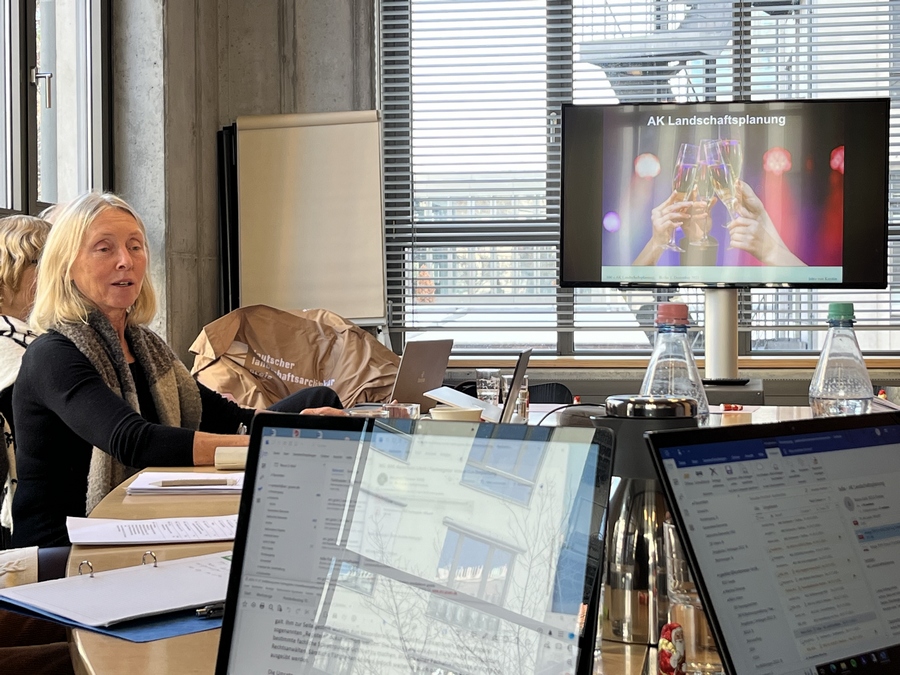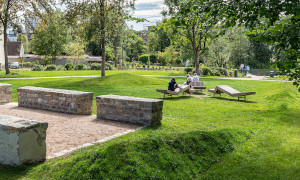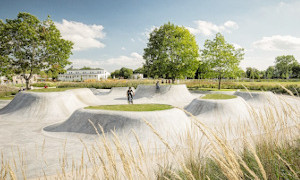On December 1, 2023, the landscape planning spokespersons of the bdla regional groups met for their 100th meeting. Special guests were the "landscape planner of the first hour" Norbert Hellmann, Nümbrecht, and Bernhard Gillich, Tier, head of the working group from 2005 to 2016.

bdla spokeswoman Kerstin Berg had "prepared something", namely a brief outline of the 100 meetings of the working group between 1990 and 2024. The founding of the committee was the result of a strategy meeting on landscape planning held on September 1, 1989 in Oppenheim, Rhineland-Palatinate. Under "Other activities", the minute-takers added that the working group sees itself as a multiplier and should meet at least twice a year and beyond on current occasions and contribute to improving the flow of information within the bdla. No sooner said than done. The agenda of the first meeting on March 30, 1990 in Hanover was almost overflowing: modalities for cooperation between landscape architects and biologists, statement on the Federal Nature Conservation Act, processing of the service profiles according to HOAI and concept for internal association training. To top it all off, at the end of September 1989, the then Federal Minister for the Environment, Prof. Dr. Klaus Töpfer, formulated "Strategies of the Federal Government for the Harmonization of Environmental Law", thus paving the way for an Environmental Code that would "create the ecological regulatory framework for our social market economy, the main aim of which is to continuously minimize risks and conserve resources as an expression of the precautionary principle". The team around the first head of the working group, Stefan Wirz, Hanover, had their hands and files full reacting promptly to regulations, amendments and changes in planning law and positioning themselves.
A few meetings later, exactly 20, the battle for the recognition of landscape planners in the bdla broke out. The numerically small group in the association faced strong headwinds. Their university education was discredited as "illegal", colleagues from object planning denied that they were landscape architects; they were dealing with topics without a future. The debate surrounding the planning law amendment agitated the profession and the presidency, and landscape planning projects were unable to score points in the German Landscape Architecture Prize competition.
Time and new actors came to their aid: in 1997, Adrian Hoppenstedt was elected to the Executive Committee as an assessor and Prof. Dr. Kai Tobias (1961 - 2022) as the specialist spokesperson for landscape planning. Mario Kahl, now Federal Managing Director, enriched the team at the Federal Office as Landscape Planning Officer.
The range of tasks on which the landscape planners in the association had to position themselves/take a stand grew immensely. The program of the 30th meeting on 17 October 1997 was dominated by: Positioning of the AK on the amendment of the BNatSchG, FFH Directive, new version of the BauNVO, position paper "Minimum contents in landscape plans for the implementation of the requirements for intervention regulation within the framework of the amendment to building law", position paper "Site planning for wind farms". - When looking at the agendas of the 100 meetings, a mischievous smile flitted across the faces of some of the participants. Apparently, it is not only in fashion that there are repetitions; sorry: trends.
To this day, the work of the working group is characterized by cooperative, friendly cooperation. There is close cooperation with the Executive Committee - everyone pulls together.
Some of the absolute "success stories" were the advanced training course "Special expertise in environmental construction supervision" from 2012 to 2022, the update conferences on landscape and environmental development, the specialist conferences on current topics such as the Federal Compensation Ordinance, the Water Framework Directive and intervention regulations, as well as the current position statement on climate protection and climate adaptation - always responsive and technically precise.
And this is once again the case at the 100th meeting. The expert spokespersons agreed on seven essentials on "Landscape - Change - Acceleration", which will reach the specialist public in a timely manner and provide specialist input for a parliamentary evening with members of the Bundestag.
- Latitude: 0
- Longitude: 0


